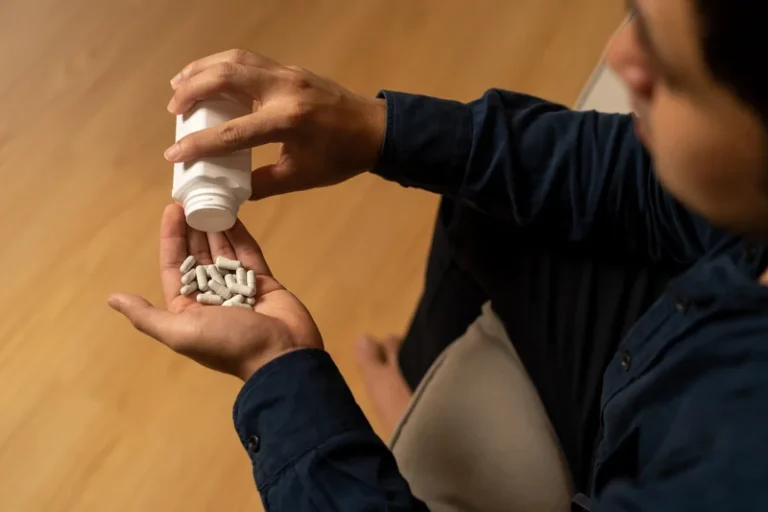
Dealing with an employee who drinks at work requires a structured and compassionate approach, balancing the need for workplace safety and productivity with the employee’s well-being. Addressing substance abuse in the workplace is a critical component of OSHA’s mandate to maintain a safe working environment. Continue reading to learn more about the dangers of drinking at work and the role of workplace policies in creating a safer work environment for everyone.
- The Recovery Village Cherry Hill at Cooper offers comprehensive addiction treatment for drug and alcohol addictions and co-occurring mental health conditions.
- However, if you’re banking on a month-long break from alcohol to help you lose weight, Kumar said it’s not your best bet.
Improve sleep
But when drugs or alcohol affects how you do your job now, you don’t have that same protection. For those looking to control or quit after-work drinking, it is beneficial to engage in alternative activities that provide drinking after work relaxation and enjoyment without relying on alcohol. Suggesting non-alcoholic meetups, such as sports events, cultural festivals, or dining out, can shift the focus from drinking to socializing and bonding.
- Checking in with another person in your life who’s trying to stop drinking can certainly help you ride out a craving with someone who understands.
- According to the Alcohol.org survey, 10% of bosses don’t mind getting drunk in front of employees, which greatly increases the risk of creating an uncomfortable workplace.
- Stress and substance abuse, such as alcohol, can be common in people who do not have effective ways to manage their stress.
- While primarily focused on illegal drugs, many employers extend policies to include policies to avoid employee drinking at work and ensure a comprehensive approach to substance abuse.
- According to the Dietary Guidelines for Americans, alcohol should be consumed in moderation — up to one drink per day for women and up to two drinks per day for men.
What’s a ‘Serving’ of Alcohol?
If you’re going to the bar after every shift or binge drinking when you get home from the office, it may be time to seek help. The social aspect of drinking can also lead to exclusionary behaviors. As some individuals may not partake in drinking for personal or health reasons, this can create divisions within teams and affect overall workplace cohesion, as reported by the BBC. Overall, the social and professional consequences of after-work drinking necessitate a balanced approach, blending awareness with supportive strategies to mitigate its risks.

How Does Drinking During Work Affect The Workplace?
- There’s an old workplace adage that warns of the dangers of getting too close to someone who can fire you.
- Trends show Americans, for instance, are drinking less than they used to, with the average number of drinks consumed falling from 4.8 in 2009 to 3.6 in 2021, per Gallup data.
- We strive to create content that is clear, concise, and easy to understand.
- However, drinking after work can have hidden dangers, regardless of your profession.
- Tell your doctor if you see, hear, or feel things that aren’t there.
Sometimes called alcoholic hallucinosis, these can show up within 12 to 24 hours after you quit. Tell your doctor if you see, hear, or feel things that aren’t there. But it’s important to know if something more serious https://ecosoberhouse.com/ is going on. While alcohol is high in calories, and wine, beer, and mixed drinks add sugar to one’s diet, cutting it out may or may not help you lose weight depending on how much alcohol you consume regularly.


Among those aged 25 to 34 years, deaths due to cirrhosis have been increasing annually by more than 10%, largely due to alcohol consumption. Regardless of what career you have, there are steps you can take to monitor your after-work drinking. One of the best ways is simply to limit the amount of drinks you have. There are several drink counting apps to help you keep track of how much alcohol you’ve had. While there can be peer pressure to drink from your coworkers, it’s important to remember that drinking is not required.
Go alcohol-free for the night
Bringing Them Back: Key Considerations as Employers Bring Employees Back Into the Office
- These chemical changes affect how your nerve cells talk to each other.
- The iconic team has developed technology which spread to concerts, nightclubs, and other sports teams.
- According to Yale Medicine, alcohol-related liver disease (ALD) can be diagnosed through blood tests that evaluate liver function and rule out non-alcohol-related causes.
- However, it does not protect employees currently using alcohol in a way that impairs job performance or safety.
- According to a survey of 2,400 workers and 250 employees in the UK from Totaljobs, more than one in three workers see drinking with colleagues as outdated.
Changes in brain chemistry
